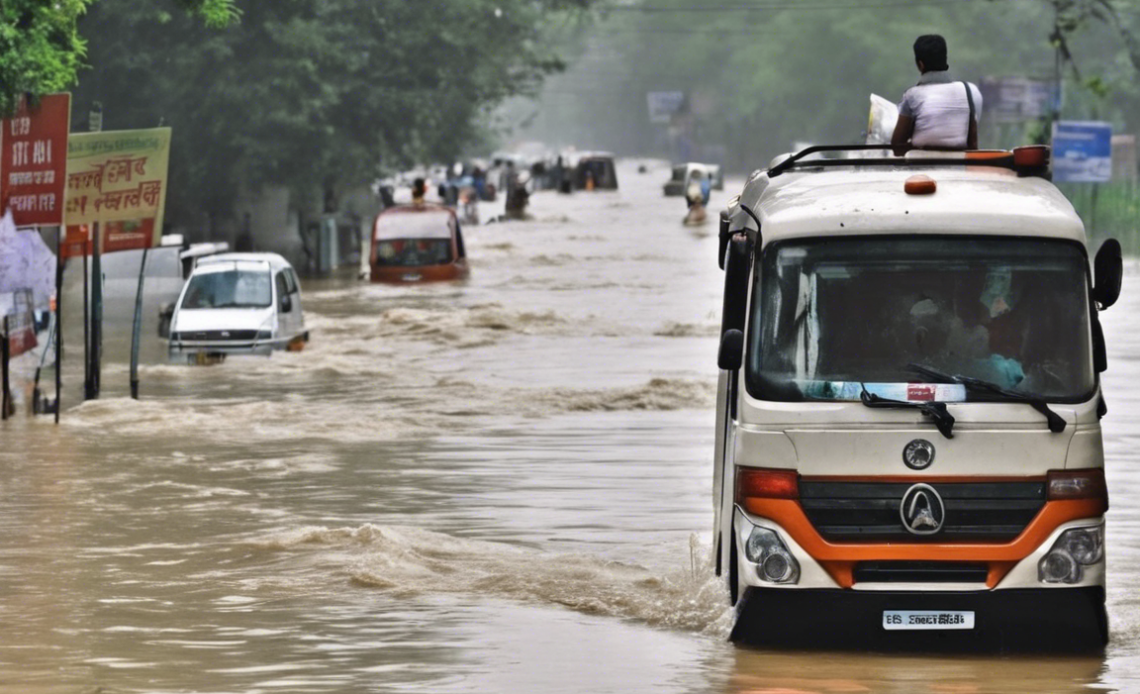
Introduction
Delhi, the capital city of India, is no stranger to annual monsoon floods that wreak havoc on its infrastructure and disrupt the lives of its residents. In recent years, the city has seen an increase in the frequency and intensity of flooding, leading to concerns about the city’s preparedness for such events. In this blog post, we will provide an overview of the Delhi floods, including updates on recent incidents, information on the causes of flooding in the city, and tips on how residents can stay safe during such natural disasters.
Recent Flooding Incidents
In recent years, Delhi has experienced several instances of severe flooding during the monsoon season. The most recent incident occurred in [date], when heavy rains caused waterlogging in low-lying areas of the city, leading to traffic disruptions and damage to property. The Delhi government declared a state of emergency and initiated relief efforts to help affected residents.
Causes of Flooding in Delhi
Several factors contribute to flooding in Delhi, including poor urban planning, lack of proper drainage systems, encroachment of water bodies, and climate change. The city’s outdated infrastructure is ill-equipped to handle the increased rainfall and urbanization, leading to waterlogging in many areas during the monsoon season.
Impact of Flooding
The flooding in Delhi has a significant impact on the city and its residents. It leads to disruption of daily life, damage to property, loss of livelihoods, and health hazards due to waterborne diseases. The most affected are the residents of slum areas and unauthorized colonies, where the drainage systems are inadequate, and the living conditions are poor.
Tips for Residents During Floods
During flooding in Delhi, it is essential for residents to take necessary precautions to stay safe. Here are some tips to help you during such emergencies:
- Stay Informed: Keep track of weather updates and alerts from local authorities.
- Prepare an Emergency Kit: Keep essential items like food, water, medicines, and torchlights handy.
- Avoid Flooded Areas: Stay away from flooded streets and water bodies to avoid accidents.
- Evacuate if Necessary: If instructed by authorities, evacuate to safer locations.
- Check on Neighbors: Ensure the safety of your neighbors, especially the elderly and vulnerable.
Frequently Asked Questions (FAQs)
1. What areas in Delhi are most prone to flooding?
– Low-lying areas like [Area 1], [Area 2], and [Area 3] are most prone to flooding due to poor drainage systems.
2. How does climate change contribute to flooding in Delhi?
– Climate change leads to erratic rainfall patterns and increased intensity of storms, causing more frequent and severe flooding in the city.
3. What steps is the Delhi government taking to prevent flooding in the city?
– The Delhi government is working on improving drainage systems, restoring water bodies, and implementing urban planning measures to mitigate flooding risks.
4. How can residents contribute to flood prevention in Delhi?
– Residents can help prevent flooding by avoiding littering, not encroaching on water bodies, and following proper waste management practices.
5. What should residents do in case of a flood warning?
– Residents should follow instructions from local authorities, evacuate if necessary, and stay tuned to updates via radio or social media.
6. How can people donate or volunteer to help flood-affected areas in Delhi?
– People can donate to reputable organizations working on flood relief efforts or volunteer with local NGOs to assist in relief operations.
7. What are the long-term solutions to prevent flooding in Delhi?
– Long-term solutions include upgrading the city’s drainage infrastructure, reclaiming encroached water bodies, implementing sustainable urban planning practices, and raising awareness about climate change.
8. How can residents protect themselves from waterborne diseases during floods?
– Residents should avoid contact with contaminated floodwaters, use clean water for drinking and cooking, and seek medical help if they experience any symptoms of waterborne illnesses.
9. Is flood insurance available for residents in Delhi?
– Some insurance companies offer flood insurance as an add-on to existing policies, but it’s essential to check the coverage details and exclusions before purchasing.
10. What should tourists do in case of flooding during their visit to Delhi?
– Tourists should stay indoors during heavy rains, avoid flooded areas, and follow instructions from local authorities to ensure their safety.
In conclusion, flooding in Delhi is a recurring challenge that requires a concerted effort from government authorities, residents, and other stakeholders to address. By understanding the causes of flooding, staying informed, and taking necessary precautions, residents can better prepare for such natural disasters and minimize their impact on the city. Through collective action and long-term planning, Delhi can build resilience against future flooding incidents and ensure the safety and well-being of its residents.

